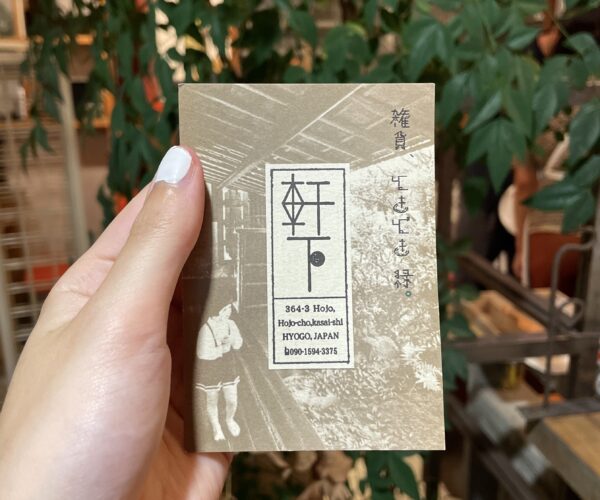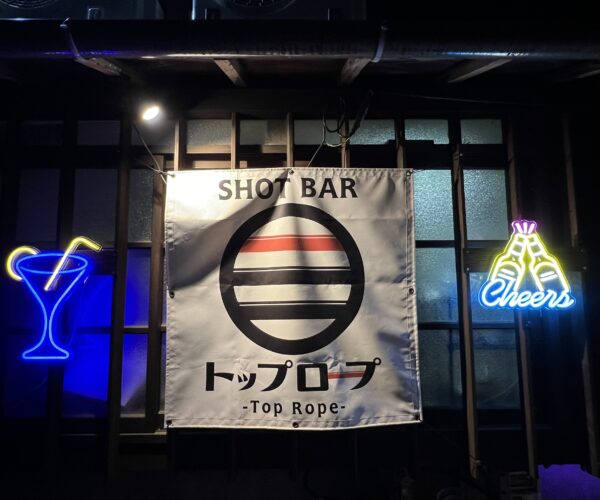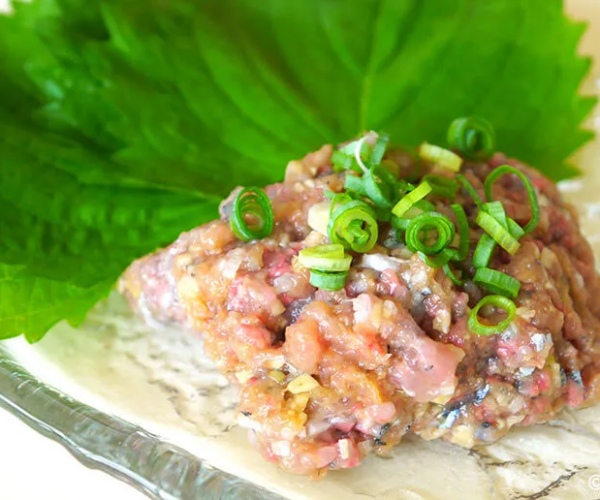This article originally featured in the December 2020 issue of Connect.
Shannon Stocker (Hyōgo)
After months of pandemic-induced closure, Japan’s borders are now loosening restrictions and welcoming new residents. This is a particularly joyous moment for me, a long awaiting 2020 JET Programme participant, as we are finally preparing to arrive at our placements over the next few months. In anticipation of our packing struggles, CONNECT have enticed a number of current JETs into sharing their experience, knowledge, and hindsight regrets.
All that Glitters is Not Gold
Packing is like Marmite, it can induce an intense fear or excitement, depending on the type of person you are. I am often tempted to pack every single piece of clothing I own just in case, but sometimes it serves to remember that old saying; ‘all that glitters is not gold’. So, to avoid the perils of over- or under-packing, here’s some valuable advice from people who have done both . .
“Come as light as possible because you’re going to accumulate a lot of stuff while you’re here. Seriously consider selling a lot of your stuff too if you think you’ll be in Japan for a while. I packed all of my belongings and put them in storage. I know that when I go back a lot of things I thought would be important to me aren’t anymore. The most useful thing you can bring is money.” Kayla Francis (Tōkyō)
Must Bring Items
“Toothpaste and travel-size deodorant. I don’t know of Japanese versions that do the job as well as the American versions. Western deodorant is effectively treated like gold among my friends.” Izumi Hansen (Tōkyō)
“Underwear and bras. I’m busty and the underwear here look like doilies. I also order from Victoria Secret and they arrive very quickly. Towels (on your first night you might be so tired and you just wanna take a shower and then you’ll realize I don’t have a towel … bring a towel!)” Elvia Valles (Saga)
“I’m glad I bought my favourite perfume, deodorant, toothpaste and makeup. I’m also glad I brought my leather jacket and a comfortable pair of heels (that I barely ever wear) for my annoyingly wide feet.” Kayla Francis (Tōkyō)
“DEODORANT! For the people in back deodorant!! Zero waste haircare. Clothes that made me feel myself.” Alice Ridley (Gunma)
Packing Regrets
“I regret bringing a lot of clothes . . . I did so because I’m a chubby person and thought Japan would not carry plus size clothes. They do. But I’m also not living in an inaka area. So, it depends on your placement and availability. I also brought summer wear that I never wore lol if you know you won’t wear it don’t bring it. Don’t second guess or try to talk yourself into it. If you do regret not taking a clothing item you can always ask your family to send it to you later on.” Elvia Valles (Saga)
“I would think about perfumes as Japanese people can be quite sensitive to smell. When I wear perfume I get anxious that it’s too strong. Japanese people favour neutral smells.”
Alice Ridley (Gunma)
“Outfits for wearing at home, T-shirts, warm sweaters. Japan has lots of seasonal goods made from the material that keeps you cool in summer heat and warm in winter cold.”
Natalia Orshanskaya (Nagano)
“I regret about 80% of the clothes I brought with me and think constantly about the things I chose to leave at home. For example, why did I bring three pairs of black heels that I never wear because they will probably kill me on my way to the train station?” Kayla Francis (Tōkyō)
Dress Codes
“I’m at a private school and the dress code is a bit stricter than my friends’ schools. When I first arrived I had to wear suit pants, a proper button down shirt and a necktie with a blazer on hand. Things have kind of relaxed since then as we’ve had a change of management and now things like polo shirts are more acceptable and we no longer have to wear neckties. I have definitely tried to push the limits at times, wearing turtlenecks and bright prints. I would definitely recommend testing the waters when you become comfortable at your school.” Damien Levi (Tōkyō)
“I wasn’t told about the dress code. I was quite confused when I arrived and I would advise feeling it out of your own school once you arrive. Play it safe and then try new things.” Alice Ridley (Gunma)
“Semi-professional dress. A nice blouse and knee-length skirt with Oxfords were fine, but a put-together sweater and dark jeans with sneakers were also okay. Suits were required for special events, like graduation or visits by delegations. I did stick to the dress code since it’s respectful of the work being done in the school.” Izumi Hansen (Tōkyō)
“I assumed business and showed up in a blouse and dress pants. The other female teachers were in cool biz so the next day I dressed more comfortable for the weather but still professional. Never had a problem.” Elvia Valles (Saga)
“I wasn’t told my school’s dress code before I left and it turned out there is no dress code at my work. Zara is my go to quick work attire store, but I recommend shopping thrift as much as you can. Standing out is not a bad thing. Be confident in your clothing choices!”
Robert McDonald (Tōkyō)
“People in my office dress very smartly even the PE teachers when they’re not in gym clothes. One of the PE teachers sometimes wears a waistcoat . . . I would say that I stick to the dress code but I have a lot more leeway since I am a woman and don’t have to wear a suit. I normally wear a dress or a shirt with trousers/skirt.” Kayla Francis (Tōkyō)
Is There Something On My Face?
Cramming a year’s worth supply of your favourite skin and make-up products might seem like the logical thing to do but our sources tell us that Japan has some great alternative options for your faves. Before you stockpile and leave your local Superdrug half empty, have a read of our current JETs wise words, and you might be able to save some pennies.
What brands and products have you discovered that you can no longer live without?
“DHS is a popular brand here for a reason. I love their cleansing oil. It’s cheap, effective and you can buy it in most drug stores. I highly recommend going to the dermatologist here if you have any skin issues. Before I arrived in Japan my skin got really bad and the stuff my doctors gave me didn’t help. I was heartbroken to get acne as an adult because I never had bad skin growing up and I take skincare very seriously (I love the Korean 10 step routine). My skin issues were caused by stress and also my hormones going crazy after I stopped taking the birth-control pill (no regrets) which apparently is super common. Moving here made it even worse and until I started going to a dermatologist it didn’t get better. I was really worried they would tell me to go on the pill because it made me depressed. They did but thankfully after I explained the situation they were able to prescribe some vitamins and cream. The dermatologist is very cheap here and 70% is covered by our insurance. It took a long time for my skin to completely clear up (I’m talking months) but since then I haven’t really broken out, not even on my period!” Kayla Francis (Tōkyō)
“Innisfree. They have a green tea line and it’s very nice and soothing. They also have gel creams which is great for oily skin because gel/jelly creams are moisturizing without being greasy.” Elvia Valles (Saga)
“CLEANSING OIL!!! I use the softymo speedy cleansing oil which is very gentle. What I like about this cleansing oil is that you don’t have to double cleanse like other cleansing oil. Always check if it’s required to do another cleanser after oil.” Alice Ridley (Gunma)
“Japan has a huge number of affordable skin care products with respect to local climate and environment. I would recommend bringing only the minimum things for your daily beauty routine. As soon as you settle in, you can buy everything you need from local drugstores.” Natalia Orshanskaya (Nagano)
“I am currently using a significant amount of Elta MD, Thayers, Glossier, and Derma-E. For Japanese products, the onsen at home bath salts kits are significantly better than anything you could ever find at LUSH as well as the face masks here are such a higher quality for the price than outside Japan. Kose Q10, an amazing face cream I discovered in Japan, and Honpo eye cream are my current Japanese based skincare additions to my lineup. Honestly, Muji makes some great quality and affordable skin care products. I use their herbal facial mask that you apply after your cream and it locks in that lotion all day. Just an added barrier between your skin and the dry air.” Robert McDonald (Tōkyō)
Have you had any difficulty finding your foundation shade?
“It was easy for me because I took a picture of the MAC foundation I normally use and took it to the store. I then paid probably more than double what I did back home for it. I’m mixed race and my complexion changes in the sun. It’s not easy here and you may end up just going to a store you know you can buy it from. It exists, you just might find yourself paying more for it.” Kayla Francis (Tōkyō)
“It has been easier for me because I have yellow undertones. I haven’t seen much by way of tan, brown, or black shades in Tōkyō, so if you have a darker skin tone, you may want to consider bringing your own foundation.” Izumi Hansen (Tōkyō)
“Personally I don’t often wear foundation because it’s too hot in Kyushu. But I’ve never had a problem finding a shade.” Elvia Valles (Saga)
What is the Protocol with Tattoos and Piercings?
“It is all ESID. I have pierced ears, four earrings and always wear them. I have three schools and so far no-one ever said anything to me, on the contrary, my teachers often show interest towards my accessories. As for the tatoo, I have it on my back, so it does not affect my daily life, but, for the onsens I have to cover it with a patch.” Natalia Orshanskaya (Nagano)
“I have a septum piercing that I always had flipped up. I would never wear it down at school. Sometimes kids at elementary school would see it up my nose and ask questions but that’s just kids being kids! I would try to avoid going to public events where I was wearing my ALT hat with it down. I would occasionally wear earrings in my ears but I felt this sometimes got side-eyes.” Alice Ridley (Gunma)
“A no go in my case, I was wearing a piercing in my ear during school in my first year and at the end of the day before I went home my supervisor very nicely asked me not to wear it again. I wasn’t aware at the time that the school has a no-piercing rule. I was a bit surprised considering female coworkers had piercings in their ears! In terms of tattoos, mine are covered almost all the time by my clothing, however, when I wear sportswear or short socks they can show sometimes. I’ve never had anyone say anything about them being bad, just general interest when someone does notice.” Damien Levi (Tōkyō)
Is Wearing No Make-Up Acceptable in Work?
“I think in inaka it’s probably fine but I work in a private school in a very expensive/chic part of Tōkyō. Most of my coworkers wear some makeup and have their nails and hair done. That is nothing compared to how amazing the residents I see daily look. However, I simply do not have the time, money and patience to look like that every day. I love makeup and fashion and when I first arrived I wore makeup everyday. I live an hour away from my school and it was only a matter of time before I prioritised 10 minutes extra of sleep. My students were genuinely shocked to see me without makeup the first time. I mean that they full-on reacted, it wasn’t rude or anything they just weren’t used to it. It made me realise that they don’t get to see women look casual very often and I thought it was important that they see that especially with any self-esteem issues they might be facing. So since then I rarely wear makeup to work unless I have plans afterwards. I’m sure my skin thanks me for it too.” Kayla Francis (Tōkyō)
“It’s very uncommon to not wear at least a little foundation, eye shadow, and maybe some lip color, even to the grocery store. I always feel out of place without makeup on at work or a long day out doing activities, though I’ve gotten over wearing no makeup to the grocery store if that’s the only place I’m going that day. If you want to get away with just a little makeup (or no makeup), just put on a mask.” Izumi Hansen (Tōkyō)
Things Are Getting Hairy
My wavy hair freaks out in the humidity, freezing temperatures, or even changes in water. If you’re anything like me, you’ll be worrying, almost daily, about how on earth you will tame your tresses in an entirely new climate . . .
“I have always dyed my hair at the hairdresser’s and upon coming to Japan I started struggling with my hair somewhere after six months. My European hair is thin and it was hard to find the Japanese hair colour that would suit me. Please remember that in case you are blonde or have a light hair colour, the local bleach will be too strong for you. Fortunately, after experimenting with local shades, I am back to my light pink hair again.” Natalia Orshanskaya (Nagano)
“I have mildly wavy hair and Japanese people would often be confused about how much my hair varies day-to-day.” Alice Ridley (Gunma)
“If you have curly and texture hair, I definitely recommend bringing your comfortable shampoos and conditioners with you but also double check to see if maybe you can order it on Amazon. Also depending on your placement you might be able to find your brand in stores! The weight from shampoo and conditioner bottles add up in your suitcase so save it as much as possible!” Elvia Valles (Saga)
That Time of the Month
For those of us who menstruate, the fear of not finding the right products can be daunting. We all have our preferred pads, tampons, or cups, and a life without them can feel uncomfortable. I have heard horror stories about having to adapt to a tampon-free world, but is that really the reality?
Would you recommend bringing period products that you are used to?
“You can definitely find pads in multiple sizes at local drugstores. Some menstrual cups are available online, but not as widely as in the US.” Izumi Hansen (Tōkyō)
“Japan has a variety of period products although you may find they are thicker and longer than in your own country.” Natalia Orshanskaya (Nagano)
I brought a cup and I have never had to take a second glance at the horrid pad sections in Japanese supermarkets. Alice Ridley (Gunma)
“You can buy everything here. I’m not going to lie, I think the products suck either way too thin/small or thick. However, it’s still useable and the answer to those questions depends on how picky you are about it.” Kayla Francis (Tōkyō)
Are tampons hard to come by?
“Yes! Bulk the tampons if you use them regularly. My parents send them to me in bulk.” Natalia Orshanskaya (Nagano)
“Yes, I have never seen tampons being sold.” Alice Ridley (Gunma)
“Drugstore Mori and I think any drugstore has them but not a lot of options for tampons.”
Elvia Valles (Saga)
Say Yes to the Dress
No, we’re not talking about walking down the aisle. We’re talking about whether I should really have a packing list that is 50% dresses? Inevitably, some of them will have to go, but how did current JETs fare with the clothing decisions?
Tall, petite, plus-sized, and everything in between
“In Europe my size was S/M, in Japan I need to buy clothes of M/L/LL sizes. However, I struggle to find clothes for my teenage daughter because Japanese kids and women are slim. I regret not bringing more underwear along. I tried to find something from local stores but it’s either the design or the size issue that I don’t like.” Natalia Orshanskaya (Nagano)
“There’s a store called Rodeo. I got my winter coat there for a Hokkaido trip it was in the men’s large and tall section and for nice prices! I’m busty so I order [bras] online.” Elvia Valles (Saga)
“I am fairly petite (5ft 2in) and Japan has been kind of great for me in that respect. I’m sure the tall girls struggle. However, I’m also quite curvy and the style here is very baggy/straight (I hope that makes sense) which looks awful on my body, I like things that go in at the waist. There are thousands of stores in Tōkyō but sometimes it can all feel very similar. I would actually highly recommend you don’t buy any clothing in advance unless you know you’re going to struggle due to your height/size. I bought a few things from H&M before I arrived here and honestly, you don’t know what the style or weather is going to be like until you get here. A lot of things I thought would be OK weren’t. You need the money more than anything.” Kayla Francis (Tōkyō)
“I brought [bras] from my home country. My friend noticed that she had a hard time finding unpadded bras anywhere, so I followed her advice and brought ones I knew would fit without padding. If you have bigger breasts, you will have a harder time finding a properly fitting bra. An aside: Wacoal is now available in some places in and around Tōkyō.” Izumi Hansen (Tōkyō)
Outside of Work Hours, How Do You Dress Casually?
“This depends on where you live, but dressing to the level of sweatpants anywhere in Japan (unless it’s late at night) isn’t very common. You probably won’t be called out for dressing in sweatpants, though you’ll notice very fast that nobody else is wearing them. I tend to dress smart casual (knee-length skirt, a blouse or nice T-shirt, and sneakers) when I’m not working.” Izumi Hansen (Tōkyō)
“I have definitely changed the way I have dressed outside of work. If you are placed in a smaller city it is safe to assume that you will constantly be recognised as ALT sensei. I cover up my cleavage up fully at all times now, I often notice the size of my breasts more than back in New Zealand. Sad face. Thanks Japan for making me feel like my body is no longer mine. No matter what you wear you will automatically look more “sexy” than your Japanese counterparts.” Alice Ridley (Gunma)
“Living in Tōkyō gives you the chance to have fun with fashion and most clothes are fine. I literally saw two girls in Shibuya yesterday wearing bright pink sweatsuits and blonde dreadlocks. I will say that a lot of people dress really well here though like some people manage to make a pair of jeans and a T-shirt look elevated. I don’t see that many people wearing leggings as pants, they normally wear shorts or something over them. That hasn’t stopped me from wearing leggings if I’m just going to the supermarket.” Kayla Francis (Tōkyō)
“I’ve really enjoyed being able to mix up my style a lot while in Japan. I lost 10 kg in my first year here so I ended up having to buy pretty much a whole new wardrobe. I’ve been experimenting with different styles and cuts, last winter I got really into turtlenecks. Summer is always a mission though, it’s so hot that it’s hard to feel comfortable in anything but I’ve found a combination of light denim shorts with a tank-top underneath a short sleeve button down looks good and gives you breathability.” Damien Levi (Tōkyō)
Thank you to those of you who submitted questions and those who took the time to answer in such honest and thoughtful ways. If you have read this article and still have some nagging questions, please email us connect.fashion@ajet.net and we will be happy to find an answer for you.
Shannon Stocker is an incoming Assistant Language Teacher on the JET Programme and the Fashion & Beauty Editor for CONNECT.




